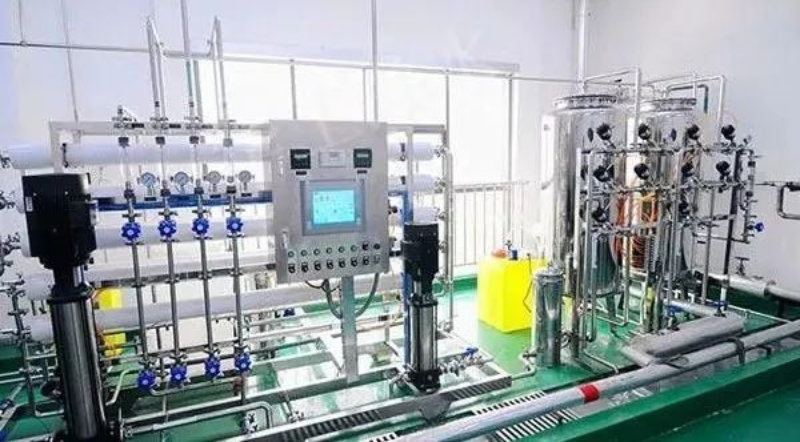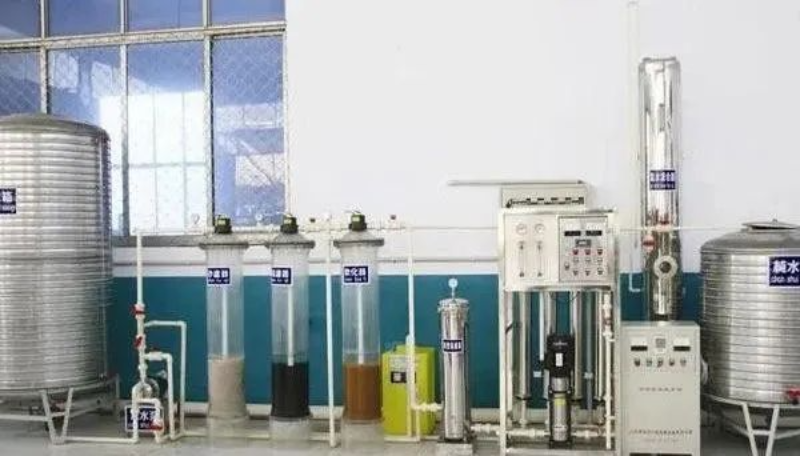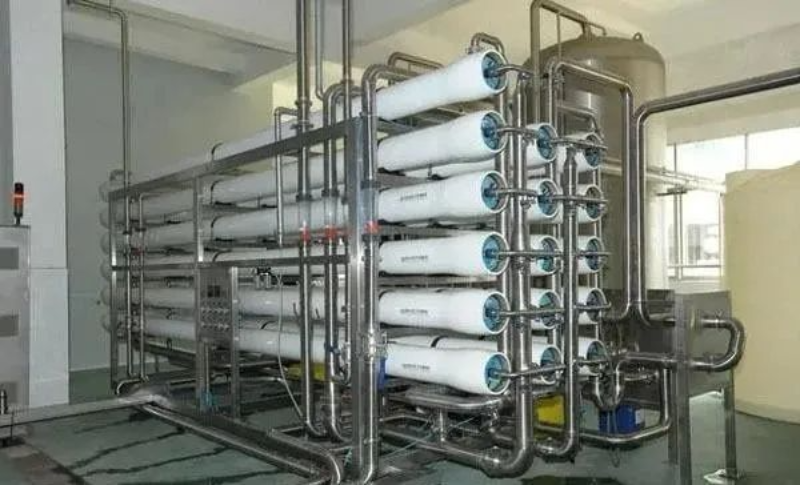(+86)0532-88988868

Water purification equipment testing
Water purification equipment testing refers to the regular inspection, testing and evaluation of various components and systems of water purification equipment to ensure the normal operation of water purification equipment and water quality safety.
Why do we need to test water purification equipment? This is because water purification equipment will be affected by various factors during use, such as raw water quality, working environment, frequency of use, maintenance, etc., which will lead to changes in the performance and effect of water purification equipment, and even failure and damage.
If the water purification equipment is not tested in time, it may cause the following consequences:
The life of water purification equipment is shortened, increasing the cost of repair and replacement.
The efficiency of water purification equipment is reduced, wasting energy and resources.
The water quality of water purification equipment has declined, affecting human health and quality of life.
Therefore, testing water purification equipment is a necessary condition to ensure the performance and quality of water purification equipment and enjoy a healthy life.
So, what is the principle of water purification equipment testing?
In fact, the testing of water purification equipment is to measure and analyze the indicators of water purification equipment, such as:
Raw water index: including temperature, pressure, flow, conductivity, hardness, PH value, suspended solids, organic matter, heavy metals, bacteria, etc.
Effluent index: including temperature, pressure, flow, conductivity, hardness, PH value, suspended solids, organic matter, heavy metals, bacteria, etc.
Equipment metrics: including the working status, running time, power consumption, and consumables usage of the equipment.
By measuring and analyzing these indicators, we can get the operation and effect of water purification equipment, as well as the existing problems and the direction of improvement.

Water purification equipment testing
Next, I want to share with you what are the methods of water purification equipment testing?
In fact, the methods of water purification equipment testing can be divided into two categories:
Instrument method: It is to use professional instruments to test water purification equipment, such as conductivity meter, PH meter, flow meter, pressure gauge, etc. The advantages of this method are high precision, simple operation and intuitive results. The disadvantage is that the instrument needs to be purchased or rented, and the cost is higher.
Reagent method: It is to use professional reagents to test water purification equipment, such as hardness reagents, PH test strips, heavy metal test strips, etc. The advantages of this method are that it is low-cost, portable, and suitable for use in the field. The disadvantages are low accuracy, complex operation, and the result is not easy to judge.
Depending on your needs and conditions, you can choose the right assay for you.
Finally, I want to tell you what are the precautions for water purification equipment testing?
These precautions can help you avoid some common misunderstandings and mistakes, and improve the detection effect and efficiency.
Precautions 1: The selection of appropriate testing methods and instruments should be decided according to the type, scale, use, location and other factors of water purification equipment, and do not blindly follow the trend or listen to advertisements. Different water purification equipment has different testing requirements and standards, such as reverse osmosis equipment, ultrafiltration equipment, softening equipment, etc. Selecting the wrong test method and instrument may result in inaccurate or invalid test results.
Precautions 2: The operation of testing instruments and reagents should be carried out in accordance with the instructions or the guidance of professionals, and do not change the parameters or steps at will. Improper operation may cause damage or failure of the instrument or reagent, affecting the reliability of the test results.
Note 3: Compare the test results, have a reasonable reference standard or range, and do not blindly believe or deny the test results. Compare the test results, take into account the influence of raw water quality, performance of water purification equipment, use time, maintenance and other factors, and do not blindly pursue the ideal value. Compare the test results, have a dynamic perspective, conduct regular testing, observe the change trend of water purification equipment, and find and solve problems in time.

Water purification equipment testing


